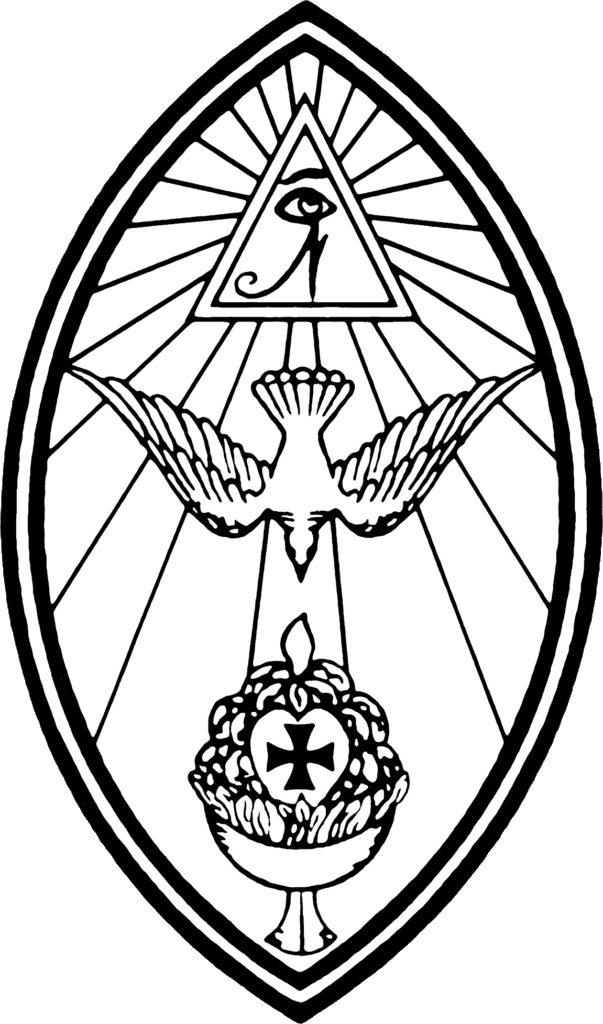NOTOCON IX Keynote Address: Neither East nor West
Address delivered by National Grand Master General Sabazius X°
to the Ninth National Conference of the U.S. O.T.O. Grand Lodge
Saturday evening, August 10, 2013 e.v.
Sacramento, California
Brothers and Sisters,
Do what thou wilt shall be the whole of the Law.
Neither East nor West. Neither the house of dawn, nor the house of dusk, neither the realm of beginnings nor the realm of endings; neither here nor there, neither black nor white, neither the past nor the future, neither the old nor the new. We find ourselves in transit; in the interstices, the in-between places, partaking of partialities, gradients, nuances, and transients. Familiar things pass away, and strange, new things confront us, leaving us excited, but also perhaps somewhat unsure, insecure, and anxious. We feel well rid of some of the old, and we welcome some of the new–but not all, necessarily.
In the face of the insecurity of the impermanence that confronts us, comfort and courage can often be found in belonging to, and identifying with, an institution that is anchored, to some extent, in history and tradition, and which exhibits the size and strength to endure into the future. We want to be a part of something larger than ourselves. It is a natural human impulse, one not lightly to be dismissed. I daresay this is why many of us are here tonight. It is, in fact, I think, one of the very foundations of human culture, and we see this tendency everywhere, manifesting in mysticism as well as in a propensity to gather together in tribes of various sorts.
A “tribe,” as I’m using the term here, can be any defined association of people, whether they are united by real ties–such as genetics, economic interdependence, physical proximity, religious belief, political ideology, or actual friendship; or completely imaginary ties–such as one’s preferred football team or brand of merchandise, or what kind of food one likes or toys one collects; or even the particular disposition of one’s first name and facial hair.
I’m not here to denounce this very human trait. It’s here to stay, and it’s really not all bad. In fact, I doubt life would be very pleasant without it–I’ve talked about the need for community several times before. However, like all good things, it can be taken too far. You can usually tell when this has happened when it starts making people stupid. And this seems to happen fairly regularly with various tribalistic associations, because it’s so easy for us to lose ourselves in them, as we self-define ourselves less and less on the basis of introspection and personal insight, and more and more on the basis of the reflected norms and expectations and paradigms and needs and standards and examples of the tribe–especially when the tribe finds itself faced with its own challenges such as change or stagnation.
The journey from East to West is made by all things, not just us as individuals, but by mountains, oceans, stars, and galaxies; and even associations and institutions such as cultures, religions, magical orders, corporations, and model airplane clubs. And this can be disturbing to us when we use these things as anchors for our identity against the currents of impermanence. And as our various tribes rise and fall in relative prominence and vitality, such disturbance can result in competition and conflict.
Conflict can be very energizing and focusing to the tribal consciousness. Real or perceived threats to the tribe’s prestige and status among the other tribes can be a matter of great concern; still more so real or perceived threats to the tribe’s collective identity as it defines itself.
When tribes, or sub-tribes, go beyond friendly competition into the realm of hostility, such factors as logic and enlightened self-interest tend to become buried under layers of jingoism and rhetorical smoke. This is where ideas are evaluated on the basis of who has proposed them, rather than on their actual merits. This is where snarl-words and fearful labels and images are evoked and programmed to attack. This is where association becomes proof of guilt, and where assumptions and doubts are deemed equivalent to evidence. This is where suspicion and prejudice and paranoia begin to build angular momentum, creating a vicious, spiraling cycle that can ultimately whip its own irrational fears into a froth of terrible reality.
And you can be sure that there are those who know all this well enough, and are perfectly willing to exploit these tendencies as tools of control to advance their own agendas.
So, what to do? (I happen to have a few thoughts.)
- First: Without making a fetish of novelty, embrace change in your environment, and in yourself. If you never change, then you have never really learned. Whenever you truly learn something new and significant, you are no longer the same individual you were before. There will never come a time when anyone has learned enough. We hear frequently about the importance of setting goals for ourselves, and eliminating unnecessary elements from our lives in order to focus on achieving such goals. But if you set rigid goals based on incomplete information, then you have done nothing but imprison yourself in your own ignorance. The key to evolution is adaptability.
- Travel. Strengthen your adaptability by broadening your experience. Seek boundaries, both external and internal, and penetrate them. Crowley wrote extensively on the benefits of what he called “honest travel,” which necessarily entails experiencing points of view other than those common to your intellectual “home town.” Don’t be content to interact with a small group of people who all share the same attitudes you do.
- Mind your priorities. Make sure your own fundamental needs, and those of your loved ones, are properly addressed before you start making sacrifices for the sake of stability or grand abstractions, such as “the People” or “others.” If each person intelligently and honestly looked after their own best interests then the best interests of “The People” would be essentially guaranteed. Remember the words of the Comte de Fenix: “The absolute rule of the state shall be a function of the absolute liberty of each individual will.”
- Be aware. Observe how the tribalistic tendency affects the social and political phenomena around you. Constantly question yourself about your own priorities and values. Where do they come from? Do they really make sense to you? Why do others have values different from yours? Part of our system involves the teaching of the principle of equilibrium as extended to all possible moral and intellectual ideas. This cannot be done without a thorough, disciplined, and ongoing examination of these ideas in one’s own consciousness. Crowley writes in Magick Without Tears,
“Beyond all, be armed against the ‘doctrinaire’ type of mind, in yourself or in another. One very soon falls into the habit of repeating ones pet ideas; as the French say,‘C’est enfoncer une porte ouverte’; and, probably before you know it yourself, you have become that most obscene, abhorred and incurable of human monsters, a BORE.”
- Finally: Undertake the Great Work. Find out who and what you really are. How else can you ever know what’s really important to you, and what isn’t, as you tread the path between East and West?
Love is the law, love under will.

